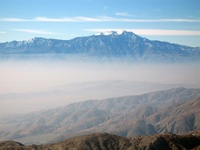Syracuse Air Quality - What are the Effects of Air Filtration Systems on Secondhand Smoke?
Secondhand smoke is a hazardous mixture of chemicals and particles that can impair people's health, even if they do not smoke. Air filtration devices in public locations such as pubs and restaurants can considerably minimize secondhand smoking exposure. Compared to non-filtered ventilation systems, studies have shown that industrial HEPA filters and molecular filtering systems can lower airborne nicotine levels.
Using a combination of both filters, experts at Lawrence Berkeley National Laboratory (LBNL) claim that after 15 minutes of smoking a cigarette, airborne nicotine levels can be reduced by 95%. This illustrates that proper air filtering systems can significantly minimize secondhand smoking exposure.
Air filtration systems, unlike smoking bans, do not require smokers to leave the premises or stop smoking entirely. This makes them a viable option for enterprises such as hotels, where smoking restrictions in rooms may be impossible to detect in real-time. Industrial air filter systems can control secondhand smoke exposure while allowing smokers to continue smoking indoors.
Protecting indoor air quality is critical for public health, and air filtration devices can help to achieve this goal. Air filtration systems can help businesses safeguard their customers and staff from the dangers of secondhand smoke. Airborne nicotine levels can be significantly lowered quickly by using industrial HEPA filters and molecular filtering systems.
If you are concerned about indoor air quality, consider investing in a high-quality air purifier for your home. It will help reduce exposure to secondhand smoke and filter out other harmful contaminants in the air, such as pollen, dust, and pet dander. Speak to a Camfil Syracuse air filtration representative to learn how air purifiers can improve indoor air quality and protect health. Don't wait until it's too late – take action to safeguard your indoor air quality and well-being.
Source: Smoking Bans vs Air Filtration Systems for Secondhand Smoke Harm Reduction — Which Is More Effective
Media Contact
Joe O'Hara
888-599-6620






